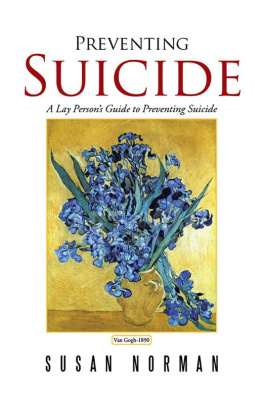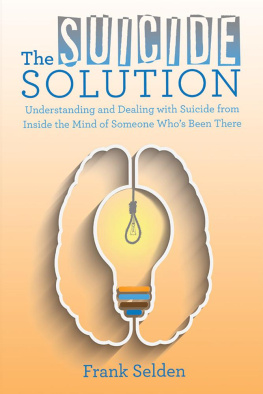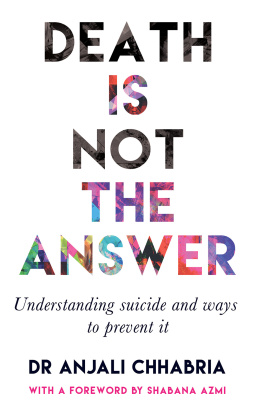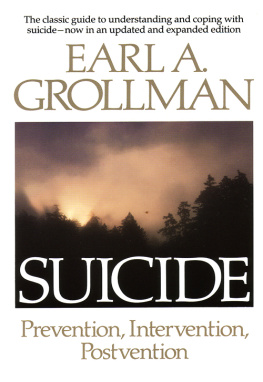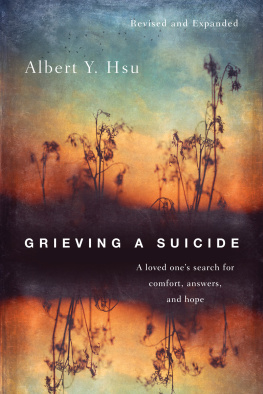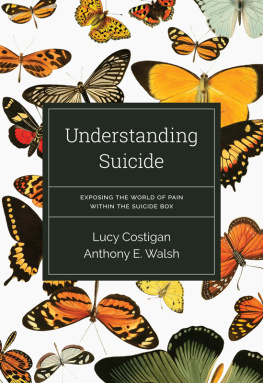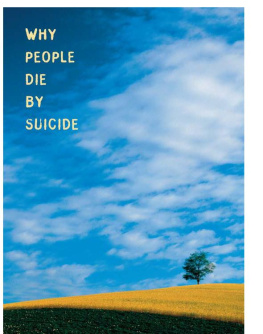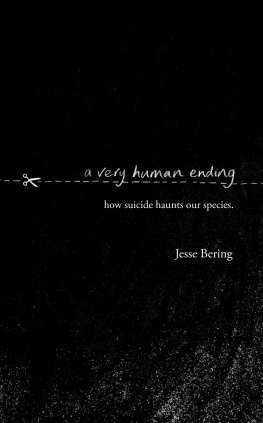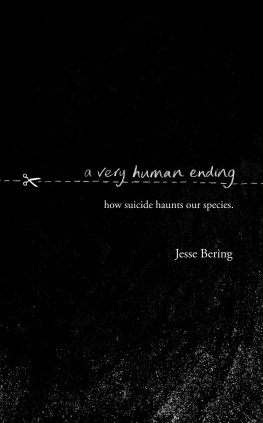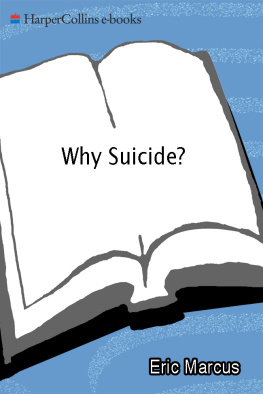C. A. Soper - The Evolution of Life Worth Living: Why we choose to live
Here you can read online C. A. Soper - The Evolution of Life Worth Living: Why we choose to live full text of the book (entire story) in english for free. Download pdf and epub, get meaning, cover and reviews about this ebook. year: 2021, publisher: C.A. Soper, genre: Romance novel. Description of the work, (preface) as well as reviews are available. Best literature library LitArk.com created for fans of good reading and offers a wide selection of genres:
Romance novel
Science fiction
Adventure
Detective
Science
History
Home and family
Prose
Art
Politics
Computer
Non-fiction
Religion
Business
Children
Humor
Choose a favorite category and find really read worthwhile books. Enjoy immersion in the world of imagination, feel the emotions of the characters or learn something new for yourself, make an fascinating discovery.
- Book:The Evolution of Life Worth Living: Why we choose to live
- Author:
- Publisher:C.A. Soper
- Genre:
- Year:2021
- Rating:5 / 5
- Favourites:Add to favourites
- Your mark:
The Evolution of Life Worth Living: Why we choose to live: summary, description and annotation
We offer to read an annotation, description, summary or preface (depends on what the author of the book "The Evolution of Life Worth Living: Why we choose to live" wrote himself). If you haven't found the necessary information about the book — write in the comments, we will try to find it.
Why do most of us enjoy being alive? Psychologist Dr C A Soper argues that a zest for life evolved as a survival necessity, ultimately because our species, and ours alone, has to live with the possibility of suicide. Suicide may have been our ancestors most formative evolutionary problem, solutions to which have shaped the construction of the human mind and touch on almost every aspect of our day-to-day experience. The emergence of anti-suicide defences by natural selection may explain our capacity for optimism, faith, love, charity and other delights of being human. This book explains how the most pleasing features of our psychology arise from the darkest of possibilities.
Life worth living is thus traced to the evolution of suicide. A major cause of human mortality, suicide takes the lives of some million people around the world each year. The origins of the behaviour have long mystified science; despite more than a century of enquiry, science does not know why some people kill themselves, while most people dont.
Progress in suicidology has been blocked, by what Soper sees as a fundamental flaw in the fields leading paradigm the idea that suicides happen because of some, as yet unknown, predictable process of cause and effect. A new paradigm is offered, based on evolutionary science. Suicide is reframed as an evolutionary puzzle: how is that natural selection created an animal with the capacity to wilfully kill itself? The cost is extreme; measured by biological outcomes, suicide is literally a fate worse than death.
Two existing evolutionary theories of suicide are critiqued and found wanting: a burdensomeness and a communication hypothesis. The behaviour is better understood, says Soper, as an unfortunate side effect of two adaptations that come together uniquely in our species. One is the aversive experience of pain, especially psychological pain an ancient stimulus that is designed precisely to induce the animal to act to end it. The other is extraordinary intelligence of the mature human, an animal so smart that it knows it can end pain by ending its own life. When these pain and brain elements combine, as they do in all normal human adults, suicide would be the expectable outcome. The scientific puzzle, then, is not so much why some humans die in this way, but why the great majority of us do not.
As the book explains, most of us do not take our own lives thanks to the protection afforded by ancient evolved psychological defences. An evolutionary argument of special design is used to predict some likely characteristics of anti-suicide systems features that would be expected based on the task that they were biologically designed to fulfil. They would block suicidal trajectories by dulling emotional pain and disabling high-level cognitive functions among people suffering from chronic emotional distress. Perhaps counter-intuitively, this analysis points to diverse varieties of mental disorder depression, addiction, psychoses, and others as manifestations of emergency psychological defences, labelled keepers.
Other anti-suicide defences, labelled fenders, are hypothesised to operate to ensure keepers activate only as a last resort. They work to keep most of us fairly happy most of the time, in part by furnishing each of us with a benign, but semi-illusory, enhanced reality to live in. In this light, the human tendencies for religious belief and unconditional love may be understood as part of a life-preserving system of psychological buffers.
The books pain and brain theory provides a unifying explanation for several longstanding and puzzling phenomena in human psychology. It offers a novel paradigm that could integrate and assist progress in suicide research, psychiatry and psychotherapy.
C. A. Soper: author's other books
Who wrote The Evolution of Life Worth Living: Why we choose to live? Find out the surname, the name of the author of the book and a list of all author's works by series.


